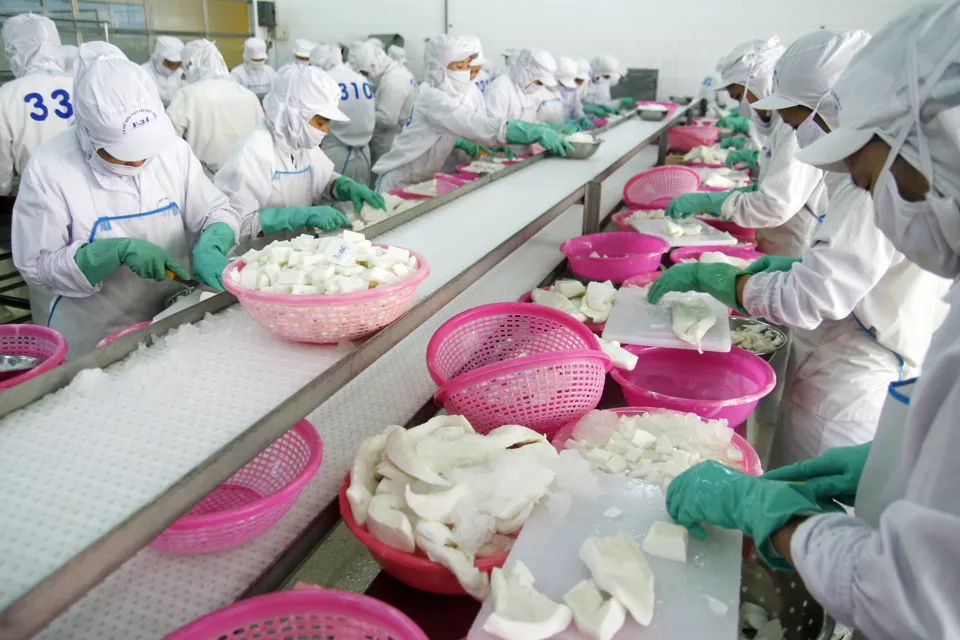Vietnam not a currency manipulator, says US Treasury
However, Vietnam was placed back on a US Treasury currency "watch list".
The US Treasury Department has maintained that Vietnam is not a currency manipulator, but has included the country among the six economies on its list of major trading partners to monitor: China, Germany, Malaysia, Singapore, Taiwan (China), and Vietnam.
| Aquatic products are processed and exported to the US market. Photo: Pham Hung/The Hanoi Times |
"Vietnam exceeds two of the three criteria over the four quarters through June 2023, having a material current account surplus and a significant bilateral trade surplus with the US," the US Treasury Department said in its Report on Macroeconomic and Foreign Exchange Policies of Major Trading Partners of the US released on November 7.
In the report, the Treasury Department reviews the 20 largest trading partners of the US to determine whether or not the trading economies are manipulating their exchange rate policies.
The evaluation is based on three criteria, as outlined in the Trade Facilitation and Trade Enforcement Act of 2015 (2015 Act), which are:
(1) A significant bilateral trade surplus with the United States is a goods and services trade surplus that is at least US$15 billion;
(2) A material current account surplus is one that is at least 3% of GDP, or a surplus for which Treasury estimates there is a material current account "gap" using Treasury's Global Exchange Rate Assessment Framework (GERAF);
(3) Persistent, one-sided intervention occurs when net purchases of foreign currency are conducted repeatedly, in at least 8 out of 12 months, and these net purchases total at least 2% of an economy's GDP over a 12-month period.
According to the Treasury Department, major US trading partners may manipulate their exchange rates between their currencies and the US dollar "for the purpose of preventing effective balance of payments adjustments or gaining an unfair competitive advantage in international trade."
Vietnam was removed from the Treasury Department's June-end monitoring list, which oversees major US trading partners for the four quarters ending December 2022, after the economy appeared on the list several times.
Pursuant to the 2015 law, the US Treasury conducted enhanced analysis of Vietnam in its December 2020, April 2021, and December 2021 reports. In early 2021, the agency began enhanced bilateral engagement with Vietnam by the 2015 Act.
In July 2021, the Treasury and the State Bank of Vietnam (SBV) agreed to address Treasury's concerns about Vietnam's currency practices.
"Treasury remains satisfied with Vietnam's progress and will continue to work closely with the SBV on currency issues," the report said.












